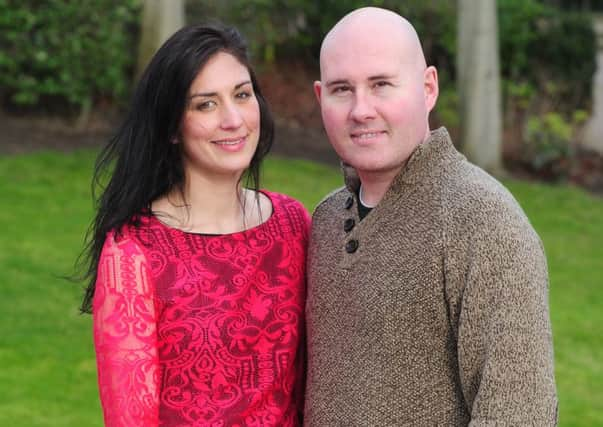Timebomb fear over soldiers’ mental health


Measures put in place by the UK armed forces are helping soldiers cope with the impact of trauma to their mental health, according to the research by the King’s Centre for Military Health Research at King’s College London.
But the study says certain groups, including those deployed in a combat role as well as reservists, remain at greater risk of mental health problems such as post-traumatic stress disorder (PTSD).
Advertisement
Hide AdAdvertisement
Hide AdAround seven per cent of troops who have seen direct combat suffer PTSD, compared to three per cent of the UK population, while alcohol misuse and violence remain areas of concern among those at risk of mental health problems.
Barnsley MP and former Army officer Dan Jarvis has been among those calling for the Government to conduct a review into support for veterans who end up in the Criminal Justice System. The review has now been commissioned and is being led by Conservative MP Rory Stewart.
Mr Jarvis, Labour’s Shadow Justice Minister, said: “This was in part because I am concerned that we have people suffering PTSD as a result of service who then end up in the Criminal Justice System.
“Due to the intensity of the fighting in Iraq and Afghanistan I am concerned we have ticking time bombs. While some will present quickly, for others it will be many years before they show the effect serving has had on them.”
Advertisement
Hide AdAdvertisement
Hide AdHe added: “It impossible to do enough for these people because we have asked them to risk their lives on our behalf. Across every area of public policy we have a life-long responsibility to support them. I think there are still thousands of people out there who will present in the future. It is worth making the point that the majority of those who serve will not experience mental health problems as a result of service, but some will.”
According to the review, between 1.3 per cent and 4.8 per cent of UK military personnel suffer from PTSD, similar to the three per cent rate in the UK general population.
Rates of common mental disorders such as anxiety and depression, which range from 16.7 per cent to 19.6 per cent of UK military personnel, are also similar to those in the UK general population. But the study found that rates of PTSD were significantly lower for UK troops than for their US counterparts, where recent studies reported rates from 21 per cent to 29 per cent.
Researchers found that US personnel tend to be younger, from lower socio-economic backgrounds, and undertake longer tours of 12 months, compared to the usual six for UK troops.
Advertisement
Hide AdAdvertisement
Hide AdThe US military also deploys more reservists than the UK, and US troops do not have access to the same level of healthcare, all factors highlighted by the authors as possible contributors to the higher rates.
And while rates of suicide and self-harm among UK military personnel are lower than in the general population, except for recruits under 20, suicide has been one of the leading causes of death in the US military in recent years.
Mr Jarvis said: “We place a greater emphasis on training and making sure people are prepared to go out on operations in the first place.
“It is accepted that training is of a high quality and goes a long way towards preparing soldiers for what they will face when they are out there.”
Advertisement
Hide AdAdvertisement
Hide AdA Ministry of Defence spokeswoman said: “We have worked hard to improve mental health services over recent years and this Government has committed £7.4 million to do this.
“This research is really encouraging but we are not complacent. We want to further reduce the stigma of mental illness and continue to better services.”
She added: “We would encourage any serving personnel who need help to come forward to access the wide range of support available.”
The study found that harmful drinking continues to give cause for concern, affecting up to one in five regular soldiers, while aggressive and violent behaviour is more likely among those returning from deployment, particularly soldiers in combat roles who are experiencing mental health problems.
Advertisement
Hide AdAdvertisement
Hide AdUK troops are more likely to report problem drinking than their US military colleagues. Meri Mayhew, development manager at the Forces in Mind Trust, which helps Armed Forces personnel and their families make the transition into civilian life, said: “In terms of alcohol misuse, a report we published last year found that rates of alcohol misuse are higher among ex-service personnel than the UK as a whole.”